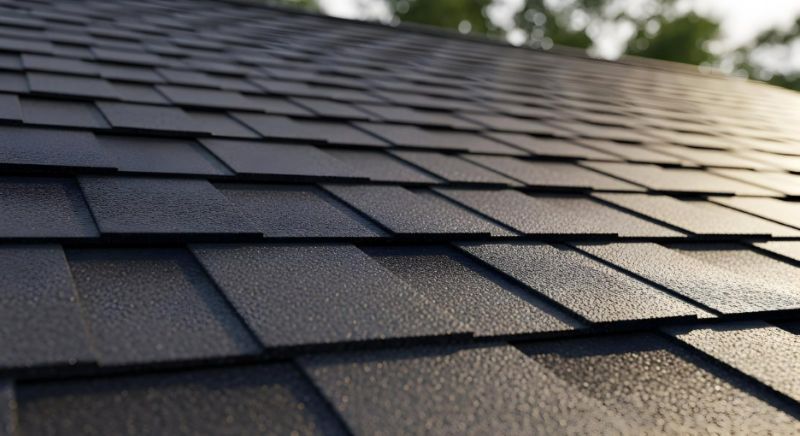Every building needs a roof that can withstand the elements, protect its occupants, and keep maintenance costs under control. Without it, even the most well-built structure is vulnerable to damage and safety risks.
That said, choosing the right material isn’t a decision to be taken lightly. Among the many options available, one that continues to prove its value is commercial asphalt roofing.
In this article, we’ll discuss what this roofing material is all about and highlight its key benefits for commercial property owners like you.
A Quick Overview of Commercial Asphalt Roofing
Commercial asphalt is one of the most widely used roofing systems for both businesses and homes today. It’s designed to cover flat and low-slope roofs commonly found in offices, retail shops, and warehouses. The material forms a tough, water-resistant layer that shields the building from rain, wind, and other weather elements.
There are a few main types used in the industry:
Built-up roofing (BUR): This traditional system layers asphalt with reinforcing fabrics, then tops it off with gravel for added durability and protection.
Modified bitumen roofing: Have you ever seen a roof that flexes with the weather instead of cracking under pressure? That’s the advantage of modified bitumen. It’s usually a blend of asphalt with rubber or plastic, which helps it stay flexible and long-lasting.
Asphalt shingles: While common in residential projects, shingles also work well for smaller commercial buildings with sloped roofs. They’re affordable, easy to install, and provide reliable protection without the heavy upkeep.
If you’re looking for reputable roofing solutions, you can turn to commercial asphalt roofing Madison WI contractors or other trusted experts in your local area. The right services mean quality materials, proper installation, and lasting results.
Key Advantages of Commercial Asphalt Roofing
The popularity of commercial asphalt roofing is not without cause. Its design and material properties offer a suite of advantages that directly address the concerns of property managers, homeowners, and developers.
Here are some notable benefits that make it a preferred choice:
Durable and Long-Lasting
Commercial asphalt roofing is valued for its ability to stand the test of time. Its materials are designed to resist cracking, warping, and other common signs of wear. When appropriately installed and maintained, it could last up to several decades. That kind of longevity makes it a solid investment for businesses and homeowners.
What adds to its strength is weather resistance. Asphalt roofing holds up well against heavy rain, strong winds, and prolonged sun exposure. For property owners, this means less frequent repairs, fewer disruptions, and a roof that continues to perform year after year.
Cost-Effective Solutions
People often look for roofing systems that balance quality with affordability, and asphalt fits well into that equation. Compared to other materials like slate or metal, asphalt generally has lower upfront installation costs. This makes it especially attractive for large-scale commercial projects. At the same time, its lower price point does not come at the expense of quality. Asphalt roofing still delivers reliable protection and long-term performance.
Maintenance expenses are also manageable. While asphalt roofing requires occasional inspections and minor repairs, its overall upkeep is lighter than other systems. That means businesses benefit from a reliable roof without facing significant ongoing costs. This reduced burden makes financial planning and resource allocation much easier.
Energy-Efficient Options
Like any home improvement, you may wonder whether asphalt roofing can help with energy costs. The straightforward answer is yes. Cool roof versions of asphalt improve energy performance in commercial buildings. They use reflective surfaces or lighter-colored materials to reduce heat absorption. This keeps indoor spaces cooler during warm months and lowers the demand on air conditioning systems.
In colder months, asphalt roofing provides insulation that helps retain warmth, keeping indoor temperatures stable throughout the year. This combination of cooling and insulating benefits improves comfort and overall energy efficiency.
Versatile in Design
A roof is part of any building’s design, be it a commercial property or a home. While protection and function do matter, appearance is essential as well.
Commercial asphalt roofing offers aesthetic flexibility. It comes in a wide range of colors, textures, and finishes, meaning it’s easy to create a polished look that suits the building’s style.
For example, offices can use neutral tones to project a professional image, while retail stores might choose vibrant shades to catch attention. Textured finishes can make flat roofs look more interesting and give the building extra character.
The goal here is to complement the structure’s overall design while providing practical performance.
Compatible With Other Roofing Systems
Asphalt roofing works well with other parts of a commercial roof. It can be combined with insulation, protective coatings, and drainage systems to improve performance. Integration with these elements increases energy efficiency, structural protection, and overall roof lifespan.
This compatibility also makes asphalt roofing a flexible choice for both new and older buildings needing upgrades. It provides a roofing system that can evolve over time, adapting to changes in design standards or energy requirements.
Wrapping Up
Commercial asphalt roofing has a lot to offer. It combines durability, affordability, and visual appeal while protecting your premises from harsh weather.
Make sure to find high-quality materials and work with reputable installers to get the job done right. Proper installation and reliable products are key to ensuring the roof performs well and lasts longer.

